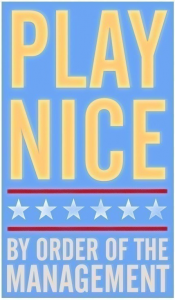There’s an excellent interview in the FT Weekend [requires registration, but worth it] with restaurateur Jeremy King. He’s about to open his first hotel, and during the interview he displays an excellent approach to brand and experience building.
The Beaumont Hotel is a new name and a totally new build, but by imagining a convincing backstory, he’s got a tool he can use to explain to everyone else in the project what the vision is. It’s a great technique and I’m sure will lead to an appealing and coherent customer experience.
He tells me the story he imagined for his new hotel, complete with fictitious founder James “Jimmy” Beaumont. Jimmy, an American mid-westerner from farming stock, was working as the general manager of the Carlyle in New York.
“One day he is chatting to some guests, bemoaning that there he is in New York and it’s 1926, prohibition’s really taken hold and the only people having fun are at the speakeasies. New York’s getting violent, the hotel is quiet and incredibly boring because you can’t serve a drink and he says to these ladies, ‘I’ve had enough. I want to get out of the business’ and they persuade him not to. They say, “Go abroad, everybody’s getting excited about the Caribbean or Cuba, go somewhere else – Paris? No, the language. Well, how about London?”
King imagines the “original” hotel was peopled by Hemingway, Fitzgerald, legendary CBS reporter Ed Murrow . . .
“Of course,” says King, “you’d never know this but the photographs, the art in the hotel . . . they all tell this story.”

